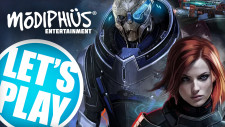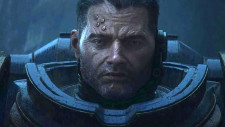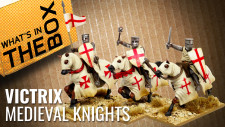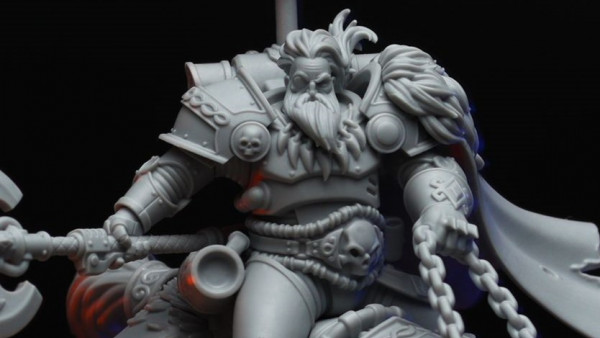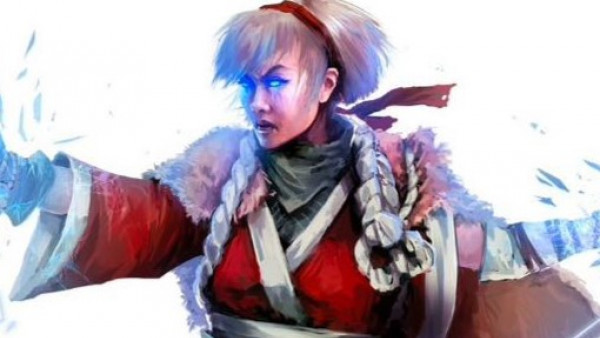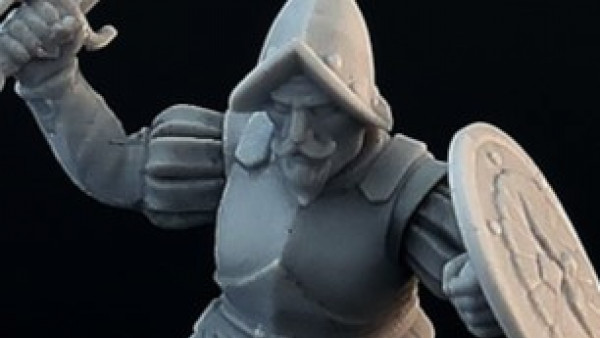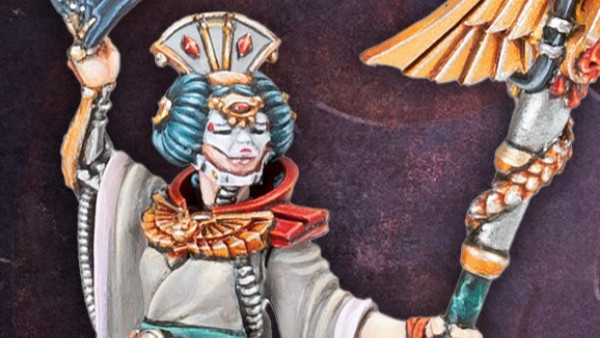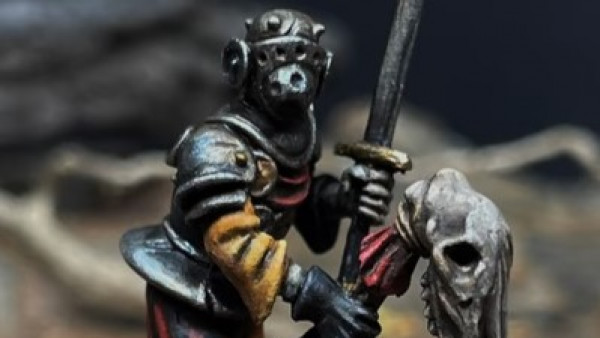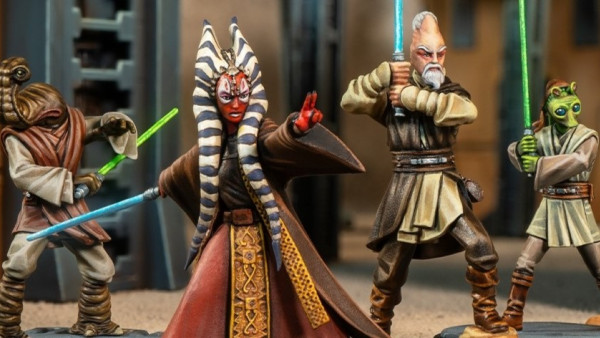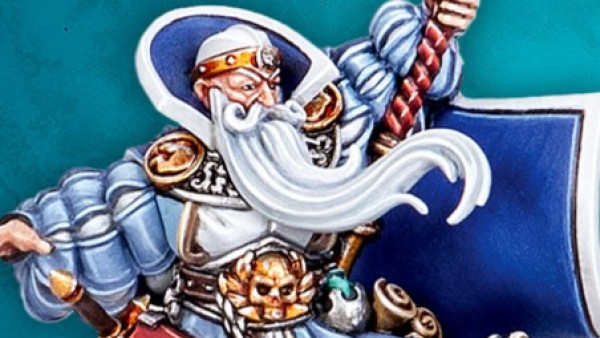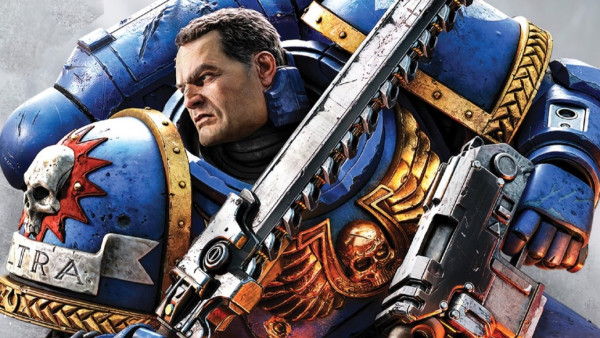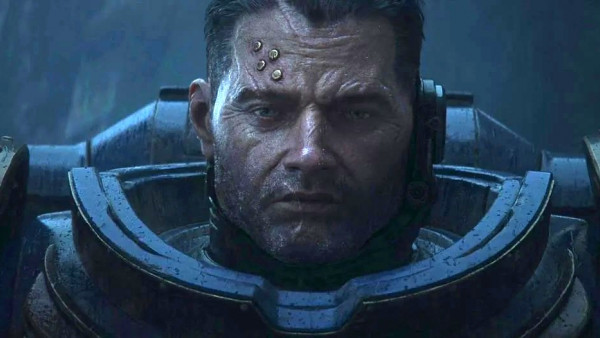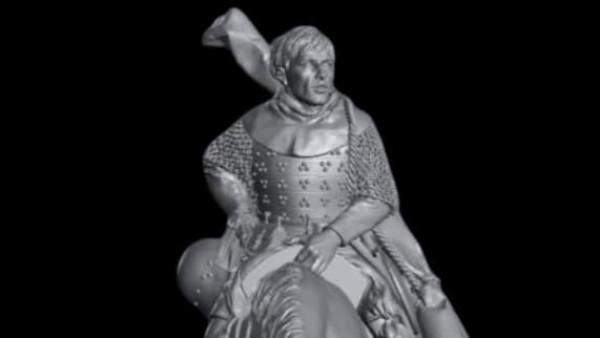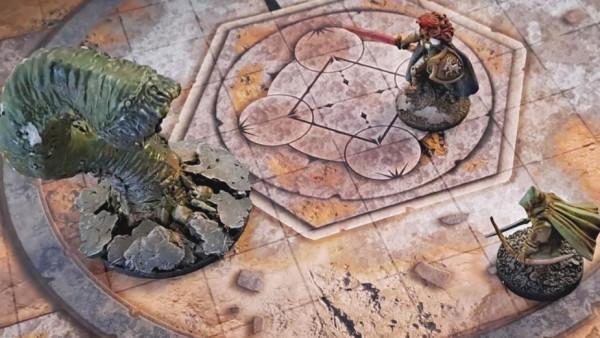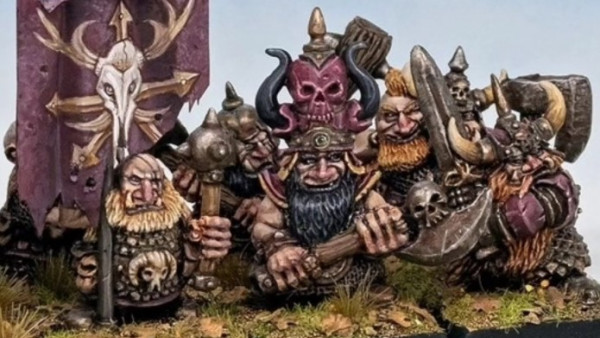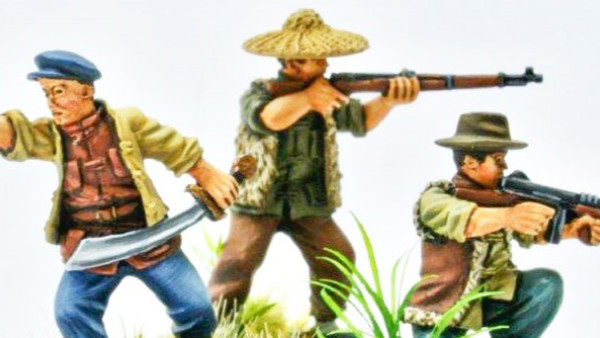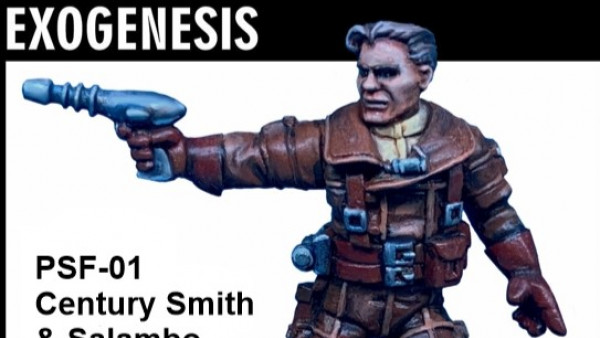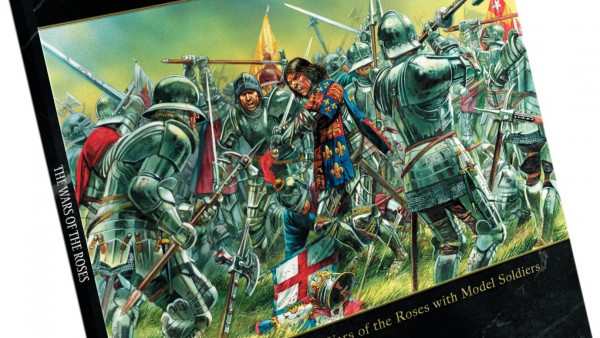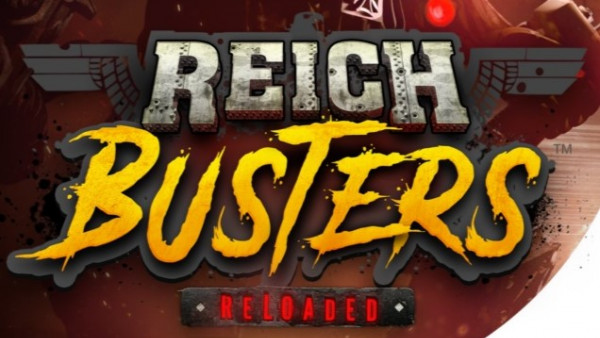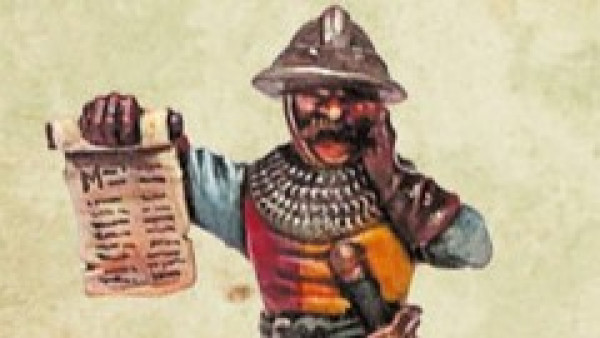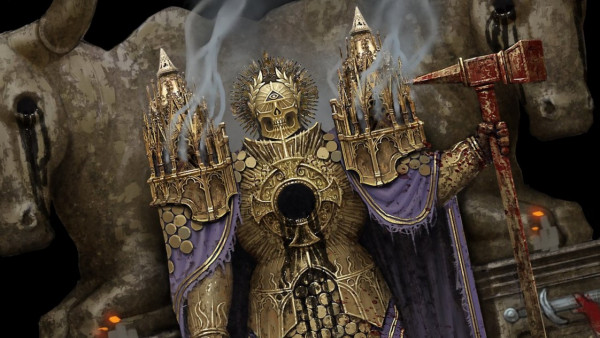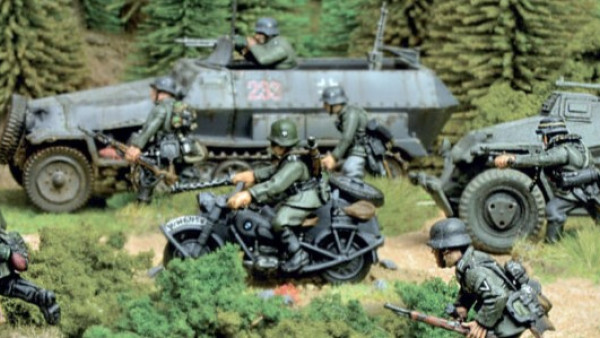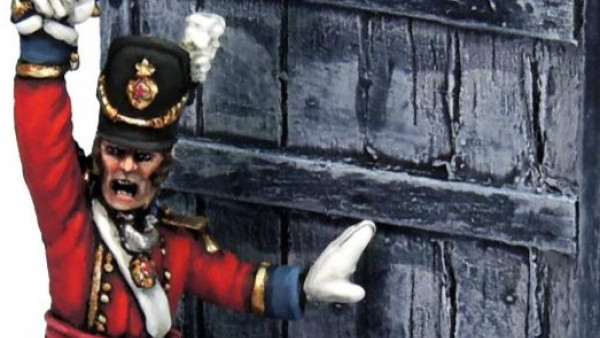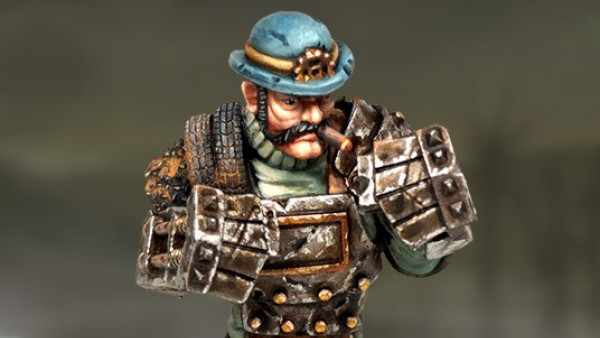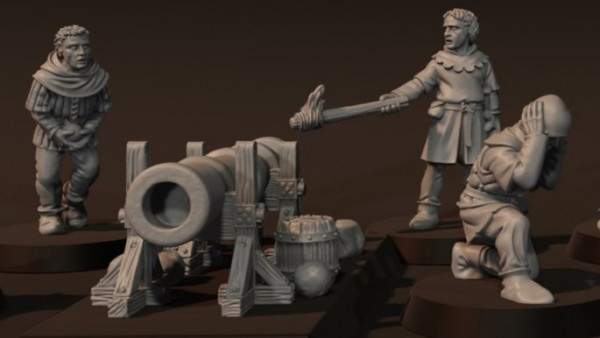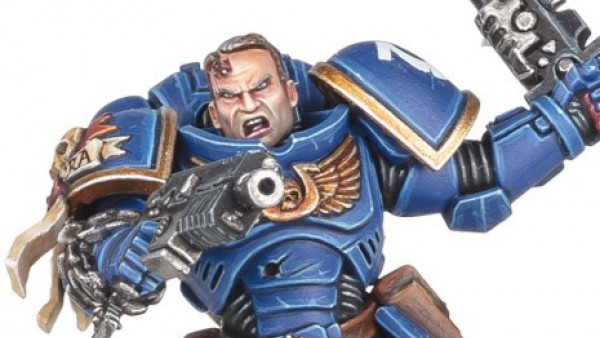Home › Forums › News, Rumours & General Discussion › Narratives in Gaming
This topic contains 15 replies, has 7 voices, and was last updated by ![]() rasmus 3 years, 5 months ago.
rasmus 3 years, 5 months ago.
-
AuthorPosts
-
May 22, 2021 at 12:29 am #1648270
As I’m in a sort of limbo in terms of hobby at the moment, I find myself gravitating towards that sometimes elusive topic of narratives in gaming (Mainly because I can usually find a pen and paper around to make a few notes of things…). It’s got me thinking of late about scales of narrative and how they might fit into certain systems or genres. It always used to be something that I would sort of ignore when playing games as it all sort of just worked out. My first game system I ever played was the old GW Lord of the Rings game (though it’s been YEARS since I partook in an actual game of it) and everything would be explained by ‘I want to play Rohan, so I have a Rohan army, narrative sorted’. When I moved on to 40k it kind of stayed the same I picked an army colour I wanted and just went with it. Always seemed like more faff to me, while my brothers loved coming up with names and stories.
These days I put more thought into it, even though I have Ultras for 40k I still think about individual names for models or squads and getting stuck into heraldry for them recently really helped with that. My Bolt Action armies are centered in reality, but my choice of battalions was very specific, and my Murder Girls in AoS got me writing a short paper about their backstory (I ought to finish that at some point…). But even within those few examples I noticed something I’ve come to think of as scales of narrative. My Ultra’s narrative is character based, as the main background is sort of fixed within the 40k setting, while my Bolt Action stuff is theatre based as I’m chosing units that were in the same place during the same general campaigns. My AoS Murder Girls are probably the most free in their background (something I would argue that is much more available with the AoS setting than the old Fantasy one).
What other sorts of scales do you think are there for this kind of thing, though? Historicals are based in reality, but how much does a narrative come to play within those types of games? Do you prefer to have a bit of narrative flavour in your games? Or are you just a friendly sort of ‘let’s just play a quick game’ sort of person? I’m kind of curious what people think on this subject as my own thoughts on it have changed so much as I’ve gotten older.
May 22, 2021 at 3:22 am #1648290I’ve named every ship and squadron in my Rebel and Imperial Star Wars Armada fleets. I keep meaning to go back and name the ship captains and squadron leaders too, but just haven’t gotten that far.
I spent quite a bit of time on the army leaders and back stories for my All Quiet on the Martian Front factions.
Coming from a heavy roleplaying background, I LOVE good fluff in my gaming. It makes it more than just board games and rules lawyering to me.
May 22, 2021 at 3:26 am #1648291I think I did the RPG thing the other way around…which might explain how I came to narrative stuff later on. 😛 I must say naming ships and such would DEFINITELY be something I’d be doing! Though some of my names might not always be the most sensible. 😛
May 22, 2021 at 4:53 am #1648329Great questions and great topic for a forum post.
For narrative in wargames, I would agree this comes with several “levels” or “scales.”
For working narrative into a wargame, I’ve always found it’s key to ensure it has a mechanical impact in the game. Weaving the effects of the narrative into the actual abilities of the man or unit is what knits the narrative and wargame mechanic together into an indivisible whole.
Pages and pages of badly-written fan-fiction is one thing, but if its doesn’t lead back to the table somehow, I find people tend to drop it or lose interest.
In Darkstar, what has the players keep coming back for years on end is accumulating campaign points. Being in a battle and surviving gets you one. Being on the winning side gets you two. Sometimes if there’s an extremely large, important, or just dangerous (starship battle in the clouds of a gas giant, perhaps) you get a few more. With every six points, you choose from a list of “Battle Upgrades” or “Campaign Upgrades” that either promote your rank, promote your ship (destroyer to light cruiser, for example), accurate gunnery, accurate torpedoes, elite aerospace fighters, elite marines, there’s a whole list. You can win medals, win star systems, win wars, lose all the same, etc.
Some people cry “augh, paperwork! ” Yes, because you have to count to six. The horror. Then they try to show me their notebooks of aforementioned fan-fiction.
In Historicals, we’ve done something similar, fighting through a year of the Eastern Front with Panzergrenadier Division Grossdeutschland with Avalon Hill’s PanzerBlitz. We each picked a battalion somewhere in the division’s OOB, became that unit’s commander, recreated that battalion’s OOB, and tried to fight through a series of historical games recreating key battles from July of 1943 to August 1944. Win a marginal victory, get a campaign point. Lose your command vehicle, get a German Wound Badge. Win a tactical victory, get an German War Cross 2nd Class (2nd Tactical Win gets you a War Cross first class, 3rd Tactical Win gets you Iron Cross 2nd Class. 4th Tactical Win gets you an Iron Cross first class). Decisive victories got you Knight’s Cross, then upgraded to KC w/ Oak Leaves, then Swords, then Swords with Diamonds (none of us got that high …)
You could also upgrade your battalion with new units, better equipment, or even switch battalion “type.” I wound up commanding II. Battalion, Pz Rgt Grossdeutschland, (20 PzKpfw IV-Hs, 20 PzKpfw-V Panthers), German Wound Badge, Iron Cross 1st Class, Knight’s Cross with Oak Leaves, Oberstleutnant rank. My friend wound up commanding the division’s StuG battalion. 😀
Another way is to have a very light, very simple campaign map. Whoever won the last battle gets to pick where the next battle takes place, and whether they are on attack or defense. This allows the winner to shape (in a small but measurable way) the overall shape of the campaign. It leads back to the table by allowing the winner of the last battle to shape the battlefield, choose the victory conditions, and determine opening initiative, almost like real commanders do.
One thing it doesn’t do is give the winner some kind of extra units or points bonus. You hear horror stories of campaigns like this, where a few early wins might give one player a lead from which there is just no recovering for the other player(s). A pitfall to watch out for.
This was the system we used for the Flames of War 4.0 Desert Boot Camp and the Western desert Bolt Action Boot Camp. We literally created our own narrative simply by tracking where the wins and losses are, rather than just tallying up “W”s and “L”s. The narrative here is an almost emergent property, as the winners get to draw the “big red arrows” on the general’s map, and drive toward key sites like enemy HWs, rail lines, bridges, cities, airfields, etc. At these boot camps, you’d hear players mutter: “Okay, we lost the last two but we HAVE to win this one …” because suddenly the battles became important in a larger context.
Just a few short ideas, I don’t want to paste up a wall of text.
May 22, 2021 at 6:54 am #1648332Yeah I feel like any ‘campaign’ format game tends to build a narrative of it’s own. My older brother really like the new ‘Crusade’ system in 40k which is similar to what you described for Darkstar with gaining points for things. As soon as a unit staying around gives it benefits you become a little more attached to it, in that sense, though the ‘overpowered pitfall’ is deff something to keep tabs on. I don’t get to play much at the moment, but I’ve always thought the idea of tracking victories or kills on minis themselves is a neat way to show that (though a little harder in Historicals unless such things were done in that period…). A little bit of paperwork means a little less once you find that attachment to something, I find. Yeah recording the battles a unit has been in seems like tedious work, but the moment it becomes an almost brag or just a simple memory of a good shot it stops being ‘work’, really.
May 22, 2021 at 7:43 am #1648342There also the narrative that builds itself if you continously field the same fixed army everytime you play (ala Nigel Stillman’s approach). Some units will forever have the memory of the time they did that heroic thing/underperformed beyond all reason.
May 22, 2021 at 7:42 pm #1648501Yeah I must admit that I tend to field the same army a fair bit when playing. Sometimes I punish minis for bad performances. 😛 I was once playing with my brother with my Primaris Marines against his Genestealer Cults and a Sergeant that I had just seemed incapable of being where he should have been and doing what he was supposed to… I named him P. Weasley for some reason and decided that the dead marine on the base of my Apothecary was him but no one knew how he died and it was an ‘accident’. 😛
Usually when army building I have a ‘core’ that I always take and then put extra units around. For Bolt Action, for example, I always start with a platoon of three sections. It deff runs nicely for letting the minis themselves make their own narrative.
May 24, 2021 at 8:26 am #1648855I must admit I’ve been thinking about the ‘narrative’ aspect in games and I’d argue it’s not scale but the player who decides to go down that route.
Some will name every unit and every single person when given time and inspiration strikes them.
Others will only do the high level stuff.You can’t force a narrative onto players, but players can create a narrative out of any game(system).
Those that lack ideas of their own can be helped by a rules light narrative campaign system. It never needs to be more than “this is the map / these are the regions / if you win you get to decide where to fight next”There are players out there who will play games as a pure mechanical excercise.
I’d argue that these are the ones that are likely to ‘break’ any campaign system that gives advantages as they are playing the system and not the game.@oriskany that campaign in both FoW and Bolt-Action was great. It was that tiny bit of extra that made the games a bit more fun to play.
May 24, 2021 at 11:42 am #1648936i have to say my favourite version of gaming is one that includes a narrative , i have slowly moved away from the GW games because the narrative is so lacking ( apart from kill team where you can create a good narrative with your team)
i have moved into core space which is a skirmish rpg style game that lets me create my crew and play on a fantastic board and each game evolves each crew member giving me a nice sense of progression.
im sure star grave will do the same but i love the characters , setting and storyline for core space
May 24, 2021 at 7:41 pm #1649185Thanks, @limburger. Indeed, that “campaign narrative” system was extremely simple and light, the last thing I wanted was the perception of trying to “take over” the boot camps. But just marking where the battles were taking place and where the wins and losses were unfolding within the campaign context – hopefully gave each battle a “relationship” to all the others and thus a cogent and mildly compelling narrative emerged for the event.
May 24, 2021 at 7:48 pm #1649187@limburger I deff agree that narrative comes from the players and not a scale in that way. By scale I more meant the scale of the game being played and what narratives are doable at that scale. I’d say my younger brother is very much a mid to high level namer (that’s a technical term I have just invented). I’m more of a high level namer giving characters names and sometimes the odd vehicle depending on the system.
Your point of forcing narrative is also a good one. I used to be more of a ‘mechanical’ gamer (though a casual one) and would get a bit annoyed when my brothers would start going on about narrative while we were playing because, at the time, I wasn’t interested in how many people Bloggins got with his expert sniper shot that he’s been training for for 20 years. Then again, my P. Weasley story from earlier came about because I just thought it was a fun part of the game I was playing. Sometimes it’s the system that brings out the narrative, but the players are always the driving factor of narrative (and I find a few beers help that along).
@deamonwolf I agree that GW is a little odd with their narrative side of things. It’s still there, and they keep building on it (the new Crusade system in 9th 40k is a favourite of my older brother and his Missus) but in terms of games there is a bit more of a focus on ‘mechanical’ gaming which I’m not a fan of. That being said, I get around it by playing with friends and family that enjoy the narrative so we tend to keep away from the non-narrative creep in terms of actual games. Small scale skirmish games like Kill Team, Necromunda, or things like Stargrave would almost feel empty without their narrative elements, though.
@oriskany Linked games or even just games connected to a place, are always a great way to build narrative. Just that moment of being able to say “well MY chaps captured Townsville!” just becomes so easy to become connected to, and I think that’s really the allure of even a loose narrative; you’re not just moving scale miniatures around a table at that point, you’re moving YOUR tiny fighting men around a place that means something.
May 25, 2021 at 4:56 pm #1649599@crazyredcoat – “As soon as a unit staying around gives it benefits you become a little more attached to it, in that sense, though the ‘overpowered pitfall’ is deff something to keep tabs on.”
This is very true. Darkstar addresses this issue with a two-tier narrative upgrade system: Campaign Upgrades and Battle Upgrades. Campaign upgrades are “off the table” upgrades, they do not effect the course of the game in any way. Faster Darkstar waves for enhanced FTL travel, promotion in rank, upgraded command rating, reduced repair times, and so on – these things do not directly impact game play on the actual table … and so do not jack up the cost of your starship (s).
Battle upgrades do effect the table play, better shielding, better EW, gunnery accuracy, gunnery impact, thrust, initiative, and so on. Each battle upgrade jacks up the your point cost by base cost x 20%.
So you have so you have destroyers like USS Oriskany or @damon ‘s HMS Sheffield that started at roughly 40 points, and now cost 130 poinst and 90 points respectively. Yes, the Oriskany is badass, but she always has to fight triple her weight. She’s the USS Enterprise of Darkstar, elite and prestigious, but always gets the toughest missions as a result (why is Enterprise always “the only ship in the sector?”). Because of her point value, she’s also the prime target for opposing players in tabletop play. HMS Sheffield is the same way, just double instead of triple.
Conversely, you have players like @rasmus who take campaign upgrades like promotion, command rating, and upgraded ship types, trading up from light cruiser to heavy cruiser and now a battleship/battlecruiser (with the extra promotions and training a commander needs for these new billets). True, his individual ships don’t grow more expensive, he just trades in for bigger ships which are more expensive out of the shipyard (e.g., his new “battlecruiser” costs a full 282 points out of drydock). But he had to promote to Captain, then Commodore, while also promoting to Task Force Command – command of certain warships types is illegal at certain ranks (no Lt. Commanders with their own battleship, for example).
This is a simplified view, the actual case between campaign and battle upgrades is almost always a blend between the two.
But we definitely allow players to chart their own career for their own captains and command crews, building a narrative legacy for their warships and crews as they see fit.
The point is, we definitely want our “narrative” system to make ships, battlegroups, task forces, and fleets more powerful, but have a robust system in place to track the point cost of these improvements to ensure players don’t “run away” with the “overpowered pitfall” you describe.
May 25, 2021 at 5:05 pm #1649611That sounds pretty cool, and also makes a lot of sense. Some people will want to newest toy on the block whereas others just keep adding things to what they have to keep it in the fight. Definitely adds that certain air of ‘this is mine’ to units within a game rather than just ‘Knight to E4, Check’.
May 25, 2021 at 5:44 pm #1649622@crazyredcoat I think ‘scale’ may make it easier to add detail.
It’s weird to tell stories about sergeant Joe who held the ground in a 15mm Flames of War battle, because there are no individuals (technically not true as ‘warriors’ allow for this).And yet it isn’t impossible although the focus is more likely to shift to named vehicles.
As such I’d say : those that want to add narrative can dos so at any scale even if it appears impossible at first glance.
I can’t imagine naming all soldiers in a 15mm soviet horde … but that doesn’t mean it can’t be done.@deamonwolf I’d argue that your lack of joy for the game is making it hard to add narrative to 40k.
I know that I will have some sort of background narrative for my 40k spacemarines (when I get to that project)
Do we really need ‘official’ rules telling us when and where to add narrative ?
It is kind of nice that GW are adding them into the next iteration of AoS and the current version of 40k, but other than time and resources there is nothing stopping us from creating our own.I’d imagine that any club playing any game could tell you interesting stories about the battles they’ve fought.
The games become the story …May 25, 2021 at 6:34 pm #1649650@limburger I think if I tried to name a 15mm Soviet horde I’d run out of names after one section… 😛
-
AuthorPosts
You must be logged in to reply to this topic.































![How To Paint Moonstone’s Nanny | Goblin King Games [7 Days Early Access]](https://images.beastsofwar.com/2024/12/3CU-Gobin-King-Games-Moonstone-Shades-Nanny-coverimage-225-127.jpg)
